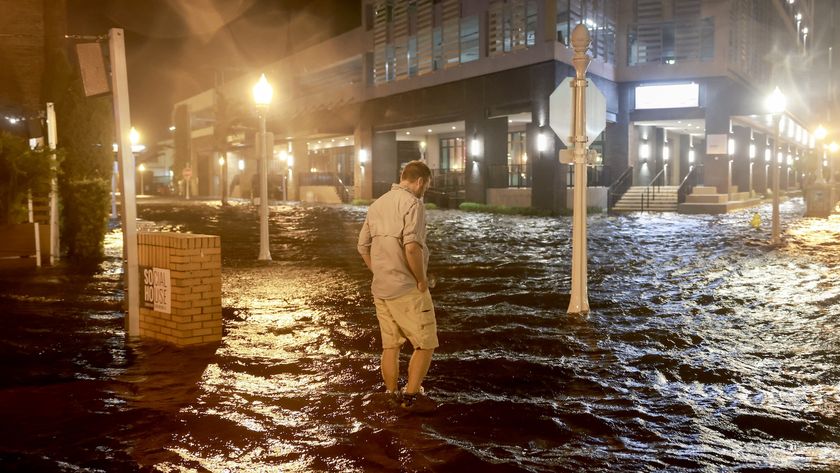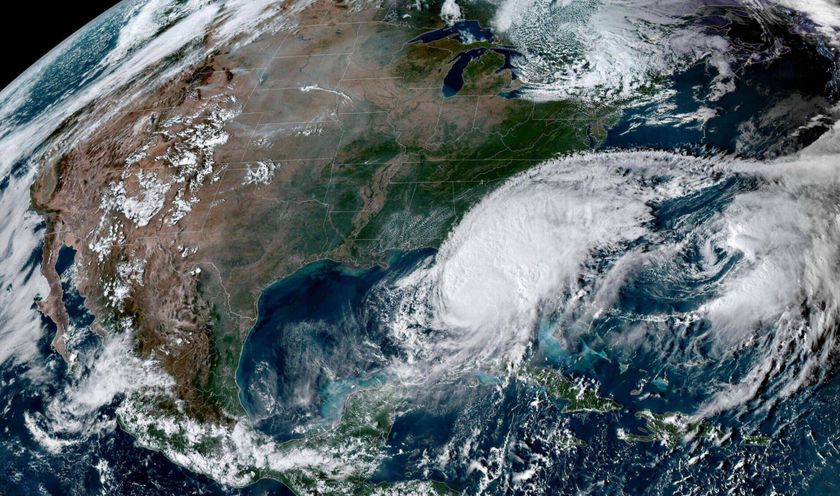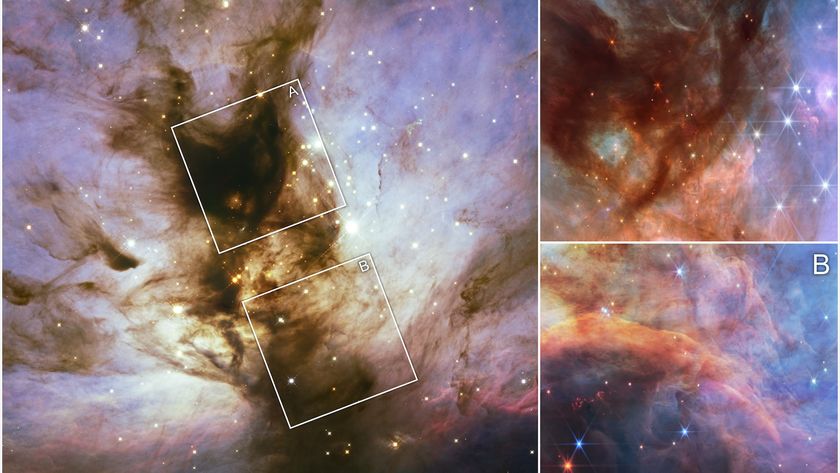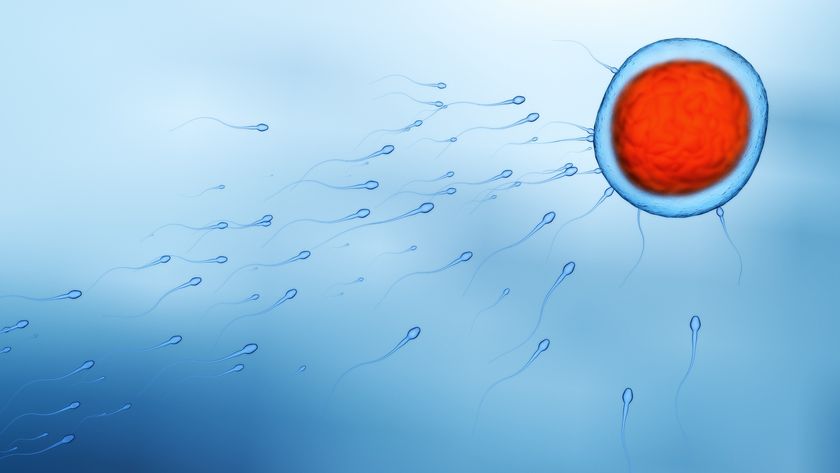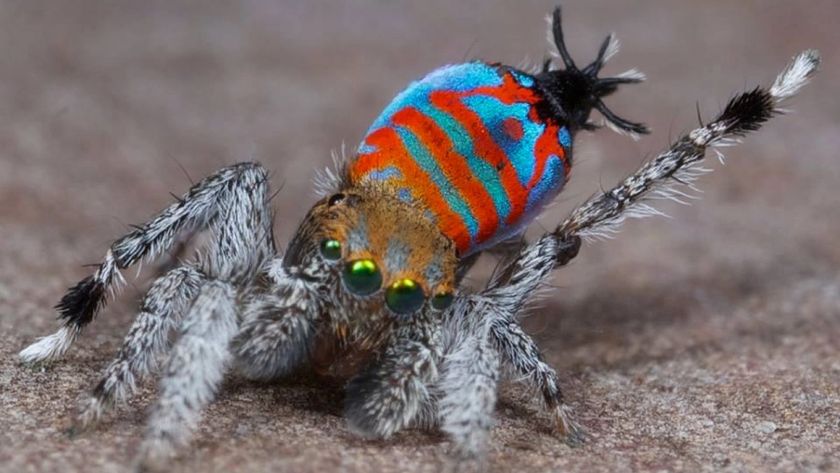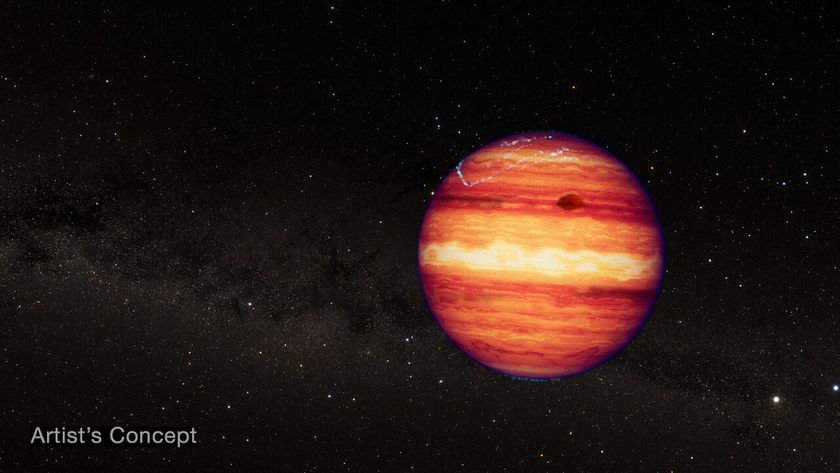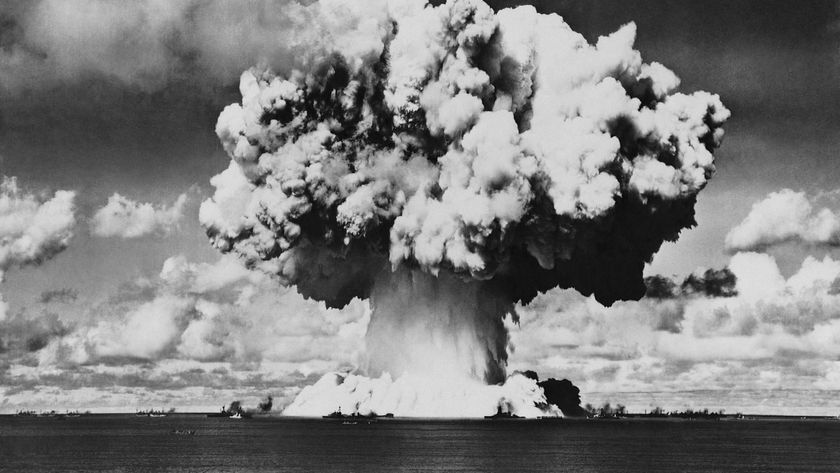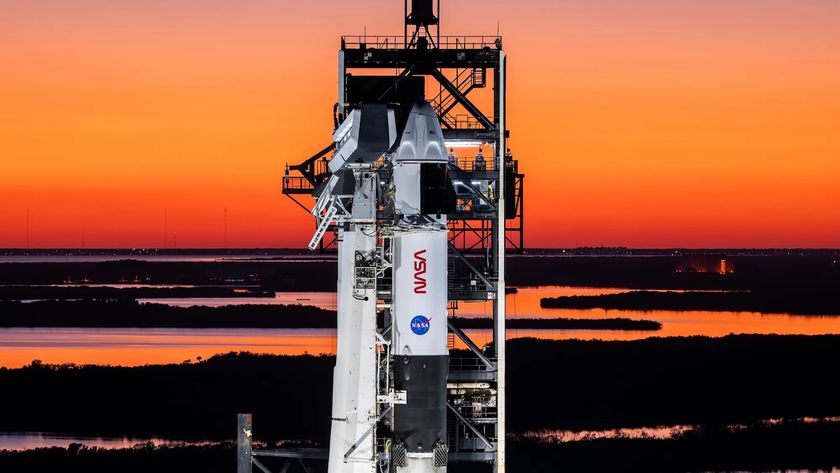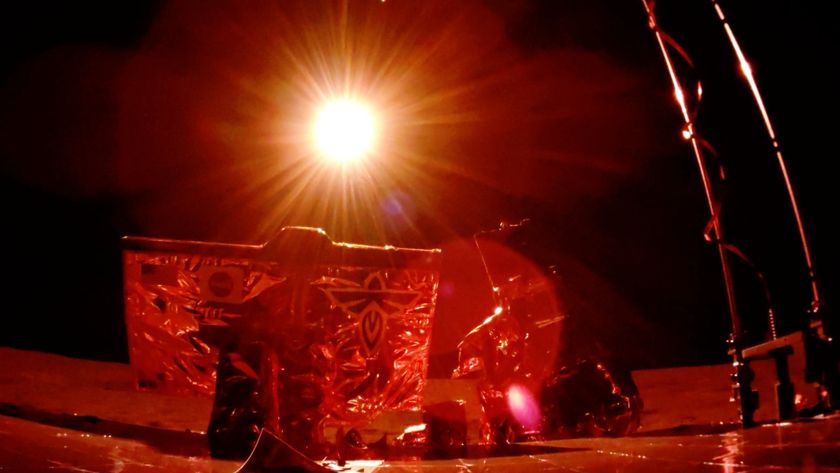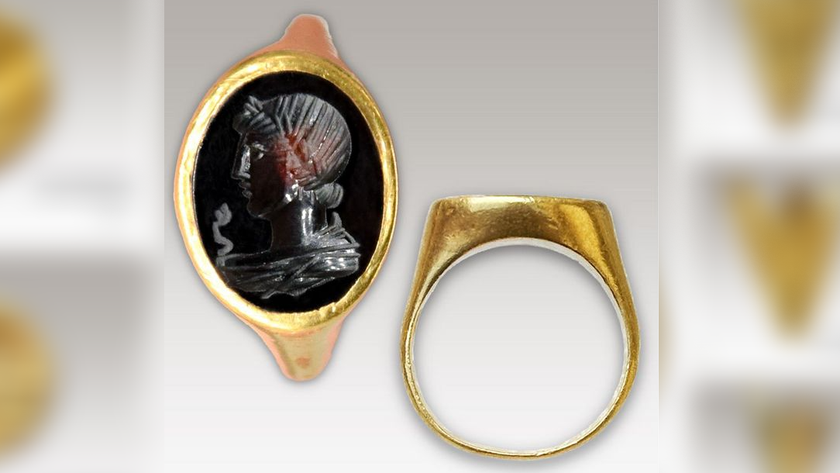Hurricane Maria's Aftermath: Photos Reveal Devastation on Caribbean Islands
Hurricane Maria Aftermath
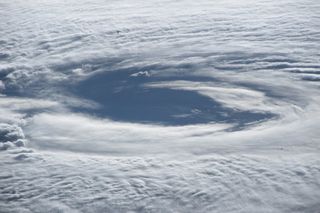
Hurricane Maria underwent a dramatic transformation on Sept. 18, 2017, when the Category 1 storm strengthened into a major beast of a hurricane, reaching Category 5 status in just 18 hours. The storm roared through the Caribbean, smacking into the island of Dominica, before devastating Puerto Rico with 155 mph (250 k/h) winds — the first Category 4 hurricane to hit the island since 1932 — and then slamming past the Turks and Caicos Islands and toward the Bahamas. Some of these islands, such as Puerto Rico, were still reeling from Hurricane Irma, which barreled through the area at the beginning of September. Here's a look at the extent of destruction caused by Maria on the Caribbean Islands.
Roseau on Dominica
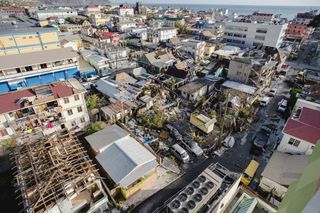
On the night of Sept. 18, Hurricane Maria, then a Category 5 storm, passed over the island of Dominica. At the time, the island nation's prime minister Roosevelt Skerrit described the devastation in a series of Facebook posts, saying in one: "Initial reports are of widespread devastation. So far we have lost all [t]hat money can buy and replace. My greatest fear for the morning is that we will wake to news of serious physical injury and possible deaths as a result of likely landslides triggered by persistent rains."
Here, some of that devastation can be seen in this image taken on Sept. 21, showing an overview of Roseau, on Dominica.
Extreme flooding in San Juan
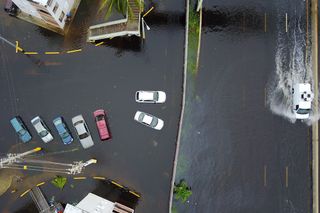
Cars drive through a flooded road in the aftermath of Hurricane Maria in San Juan, Puerto Rico, Thursday, Sept. 21, 2017. The eye of Hurricane Maria passed directly over Puerto Rico early in the morning on Sept. 20, with winds raging at up to 155 mph (250 km/h), according to the National Hurricane Center (NHC). The storm cut power to the entire island of 3.4 million people.
Storm of a century
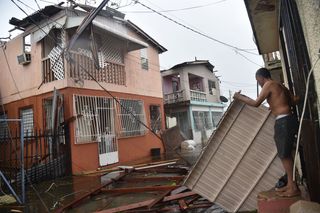
Residents of San Juan, Puerto Rico, deal with damages to their homes on Sept. 20, 2017, after Hurricane Maria battered the island and continued to bring heavy rainfall and flooding. Maria made landfall on the island Sept. 20; Puerto Rico Governor Ricardo Rossello called Maria "the most devastating storm in a century."
Destruction on St. Martin
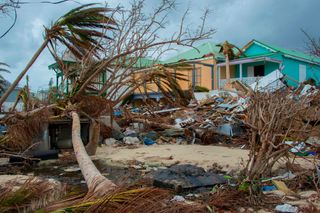
Destroyed trees and houses are seen after the Hurricane Irma and then Hurricane Maria passed through Orient Bay, St. Martin, as seen on Sept. 20, 2017. St. Martin island is located about 190 miles (300 km) east of Puerto Rico, in the northeast Caribbean Sea.
Dominica from above
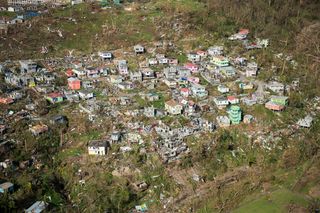
An aerial view of Roseau, the capital of the Caribbean island of Dominica, reveals destruction wrought by Hurricane Maria that passed over Sept. 18 as a Category 4 storm with sustained winds of up to 155 mph (250 km/h). Dominica, located near the French islands of Martinique and Guadeloupe, can be seen here on Sept. 21, 2017.
Sign up for the Live Science daily newsletter now
Get the world’s most fascinating discoveries delivered straight to your inbox.
Puerto Rico in ruins
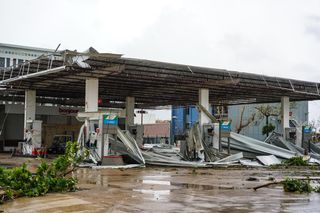
A gas station that was damaged by Hurricane Maria at Old San Juan in San Juan, Puerto Rico, can be seen on Sept. 20, 2017.
Destroyed shack in San Juan
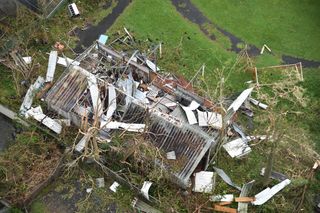
Puerto Rico braced for potentially calamitous flash flooding on Thursday, Sept. 21, after Hurricane Maria's eye passed directly across the island on the morning of Sept. 20, with winds raging at 155 mph (250 km/h). The storm killed an estimated 13 to 15 people or more on the island, according to Reuters. Here a destroyed shack can be seen in the Rio Piedras area in San Juan on Sept. 21.
La Perla neighborhood
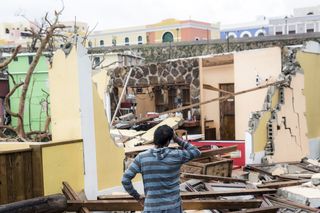
Damaged homes in the La Perla neighborhood in San Juan can be seen on Sept. 21, the day after Hurricane Maria made landfall on the island as a Category 4 hurricane. Most of the island is without power, and many are left without running water or cellphone service, according to news reports.
Juana Matos, Catano
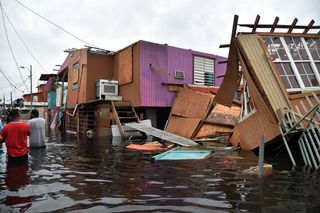
People walk in a flooded street next to damaged houses in Juana Matos, Catano, Puerto Rico, on Sept. 21, 2017. Hurricane Maria left a path of destruction across the island, which is now facing dangerous flooding.
Flooding in Catano town
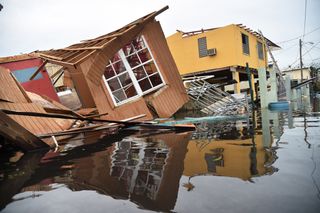
Floodwaters envelop a destroyed house in Catano town, in Juana Matos, Puerto Rico, on Sept. 21, 2017. After being pummeled by Hurricane Maria on Sept. 20, the island is bracing for possibly calamitous flash flooding. The hurricane knocked out the island's entire power grid.
Jeanna Bryner is managing editor of Scientific American. Previously she was editor in chief of Live Science and, prior to that, an editor at Scholastic's Science World magazine. Bryner has an English degree from Salisbury University, a master's degree in biogeochemistry and environmental sciences from the University of Maryland and a graduate science journalism degree from New York University. She has worked as a biologist in Florida, where she monitored wetlands and did field surveys for endangered species, including the gorgeous Florida Scrub Jay. She also received an ocean sciences journalism fellowship from the Woods Hole Oceanographic Institution. She is a firm believer that science is for everyone and that just about everything can be viewed through the lens of science.
